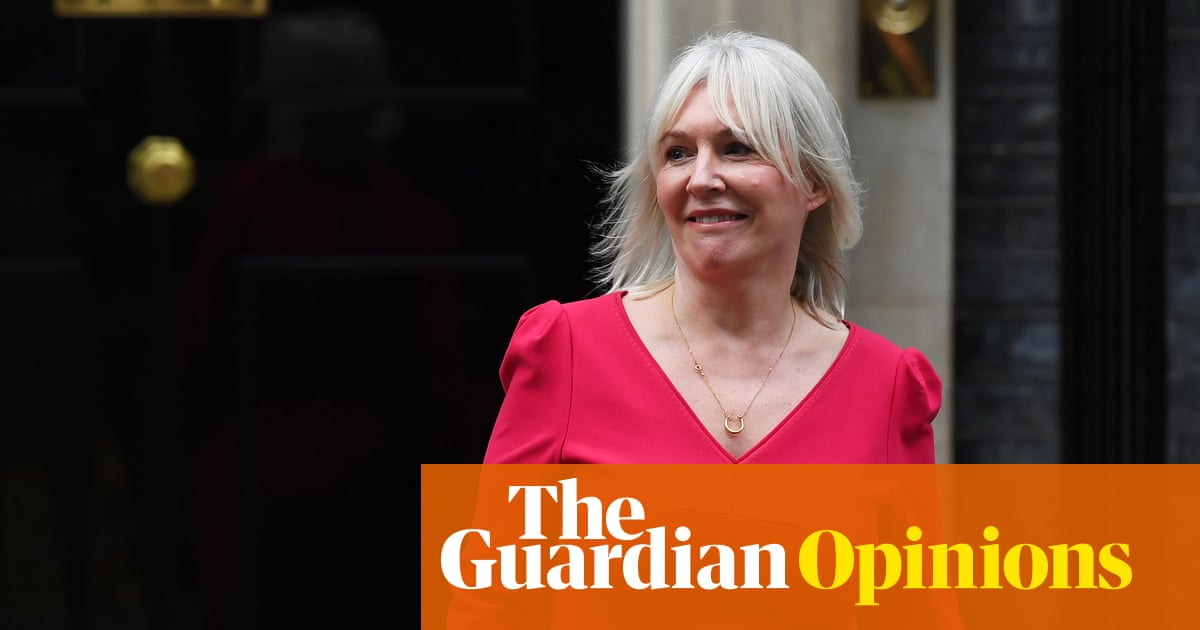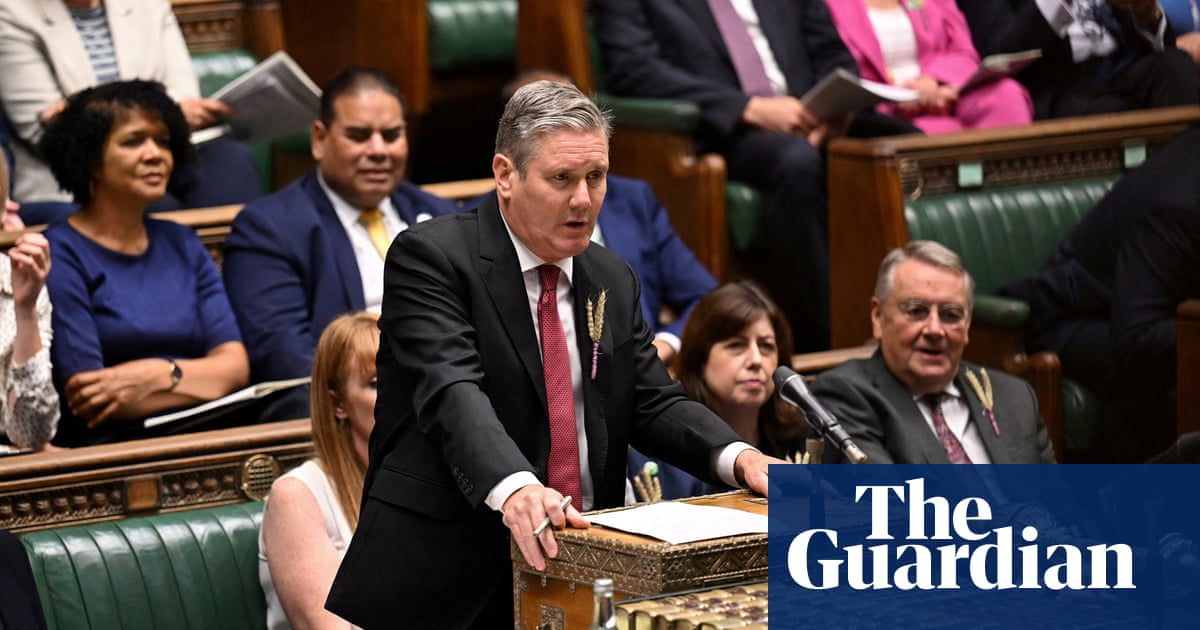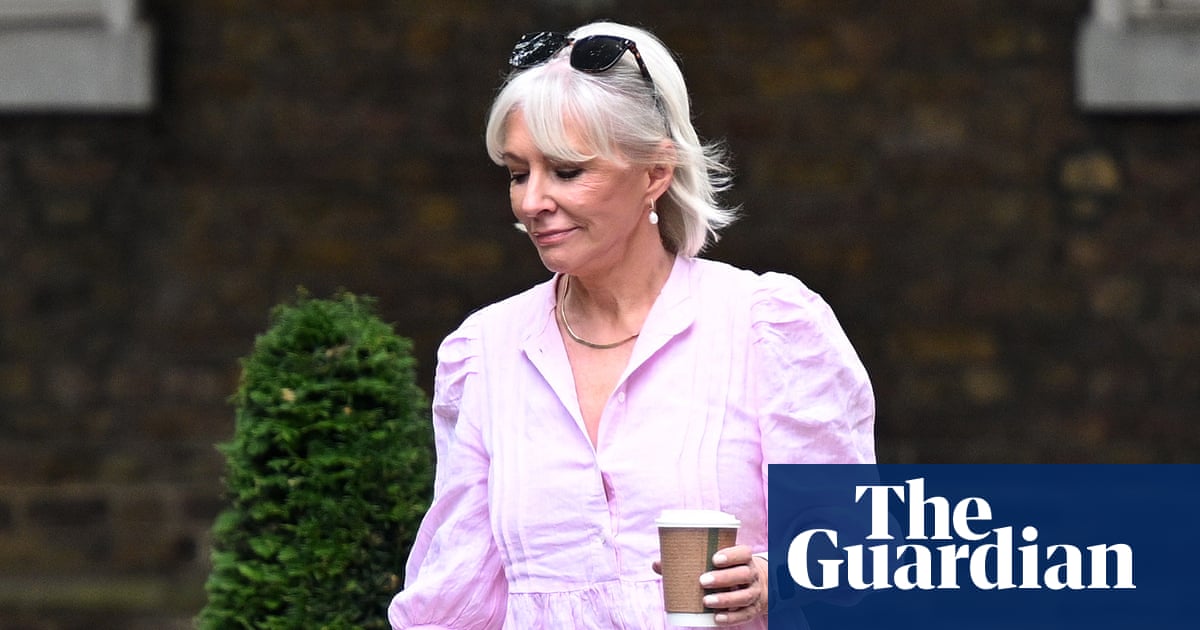
The departure of Nadine Dorries hasn’t been met with much sadness in the Tory party. “I’m yet to speak to a colleague who is sorry to see her go,” one Conservative MP told me. “If by sadness you mean relief and delight, yes,” added a former minister.
The relief is that Dorries, a key Boris Johnson backer, has finally begun the process of formally quitting the House of Commons, 78 days after she first announced her intention to do so with “immediate effect”, after a row over a peerage. The delay, along with the fact that she had not spoken in the Commons since June 2022, has provided opposition parties with plenty of attack lines over the summer recess.
Dorries meanwhile has been focused on attacking her own side – accusing Prime Minister Rishi Sunak of “demeaning his office by opening the gates to whip up a public frenzy” against her, after he voiced disapproval of her in an interview. The former culture secretary used her resignation statement to lambast Sunak’s record, and in a subsequent television interview refused to rule out voting for another party such as Reform.
Given Dorries is a well-known Sunak critic, the content of her attacks isn’t so surprising – but the venom with which it has been delivered has taken some aback. “Yet more psychodrama,” complains another of Dorries’s soon-to-be former colleagues.
While it’s generally No 10’s desire to avoid byelections – particularly given the current state of the polls – this coming vote in Dorries’s constituency of Mid Bedfordshire is seen as the lesser of two evils. There was a growing sense in the government that her refusal to go was becoming electorally toxic and a distraction.
Optimists across the party can see upsides to her departure. She now joins Johnson and Nigel Adams on the outside – the other two MPs who quit back in June as the row exploded over who was to blame for Adams and Dorries failing to receive peerages as Johnson had intended. It means the biggest Boris backers are now outside parliament.
While they can still cause problems for Sunak – and Dorries plans to do so with her forthcoming book on what she views as the political assassination of Johnson – they cannot do so by voting against the government on key issues or even threatening no-confidence letters. Their options are much more limited now. What’s more, the likelihood of a Johnson comeback has diminished at least in the medium term now he doesn’t have a seat. With all three out, MPs hope that it could mark an end to the turmoil of the Johnson era.
But just because it is seen as the least bad option, does not mean it is without problems for the government. Given the writ will be moved when parliament returns next month, the byelection will take place in October at the earliest. That is precisely the time that Sunak and his team hope to boost his premiership through the party conference and the king’s speech. Mid Bedfordshire is, on paper, one of the safer Tory seats, with its majority of 24,664. Were Labour to take it, it would be among the largest collapses in support for the Conservatives ever in a byelection. And while byelection results don’t always offer reliable indicators of what will happen in a general election, a loss would still alarm MPs with more moderate majorities of below 15,000. The hope in CCHQ is that the vote splits between the Liberal Democrats, independents and Labour, thereby allowing the Tories to go through the middle.
While some Tories are already saying a bad byelection result is “priced in”, a loss would complicate Sunak’s hope to shake things up in the autumn. The first stage of Sunak’s leadership – which has been spent trying to calm both the markets and his party – is coming to an end with a plan to be more political come the autumn. Ahead of an election year, Sunak now plans to try to go beyond his “five priorities” and offer a bit more hope.
A damaging byelection, however, will do the opposite and add to the fatalism felt by those Tory MPs who worry that the election is already lost. That’s not the view in No 10, where aides insist the Labour lead is soft. A byelection defeat would make it even harder for Sunak to suggest to anyone outside Downing Street that this is the case.
Katy Balls is the Spectator’s political editor












